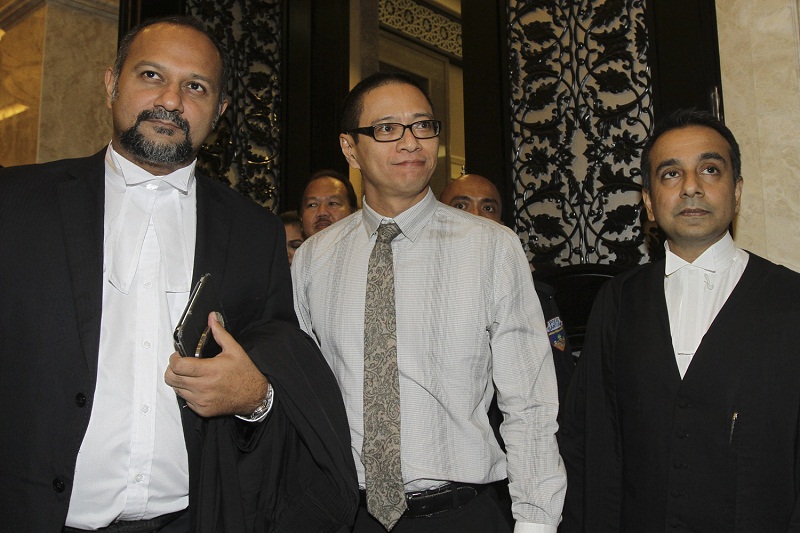KKUALA LUMPUR, Jan 13 — The Kuala Lumpur High Court today dismissed Universiti Malaya (UM) senior law lecturer Azmi Sharom’s bid to transfer his sedition trial from the Sessions Court to the High Court.
High Court judge Datuk Haji Ab Karim Ab Rahman said Azmi’s case does not have exceptional facts and that there will not be an unfair trial if it was heard at the Sessions Court.
“Therefore I dismiss the application and this case will be heard at the Sessions Court,” he said.
Azmi’s lawyer Gobind Singh Deo said an appeal will be filed against today’s decision and asked the High Court to direct the Sessions Court to stay the trial there until a decision on the appeal is made.
But Ab Karim disallowed the application.
Tomorrow has already been fixed for the first day of hearing at the Sessions Court, but Gobind confirmed to Malay Mail Online that he will be making an application there for a stay of the trial pending the appeal.
Last December 16, Kuala Lumpur Sessions Court judge Amernudin Ahmad dismissed Azmi’s application to adjourn the trial there until the High Court disposes of the associate professor’s application to transfer the case.
Azmi was charged on September 2, 2014, under Section 4(1)(b) and alternatively under Section 4(1)(c) of the Sedition Act for a remark he made in an article titled “Take Perak crisis route for speedy end to Selangor impasse, Pakatan told”, with a conviction under either charge punishable by a maximum RM5,000 fine, a maximum three-year jail term or both.
During today’s hearing for the transfer application under the Criminal Procedure Code, Gobind had cited the Code’s Section 417(1)(a) and (e) to say that the High Court may order the transfer of Azmi’s sedition trial if it appears that a fair and impartial trial cannot be had in a lower court.
Gobind argued that his client will have an unjust trial if Azmi’s use of defences under Section 3(2) of the Sedition Act – for those intending to show a government or ruler error – is later disallowed at the Court of Appeal due to Section 3(3) of the same law where intention is deemed irrelevant.
If the case is heard at the High Court instead, it could eventually go all the way up to the Federal Court, which will be able to review its previous ruling that mentioned Section 3(2) as valid defences without considering Section 3(3)’s impact, Gobind said.
Otherwise a trial that begins at the Sessions Court will mean that Azmi may be stuck at the Court of Appeal, which will likely say it is bound by the Federal Court’s previous ruling as well as Section 3(3) to deny Azmi the use of the Section 3(2) defences.
Prosecutor Suhaimi Ibrahim from the Attorney-General’s Chambers had argued, however, that there was no constitutional issue involved and that it was merely a factual issue where the defence lawyers will have to prove that the facts of the case fall under the defence of Section 3(2) of the Sedition Act.
Suhaimi also disagreed that an unfair trial will arise if Azmi’s sedition case is not heard before the High Court.



















